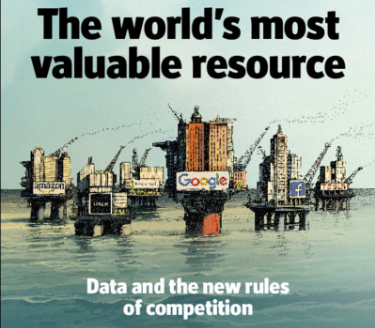Why and what do you need to know about data?
- Thomas Peck
- Oct 2, 2017
- 2 min read

For the past century oil has been the super commodity of our time. You only have to look at super rich premier league club Chelsea, owned by oil rich, Roman Abramovich whose hefty investment has revolutionised football since the takeover in 2003. A man owning the second largest yacht in the world with a net worth sitting just below ten billion USD has epitomised the grave reward of seizing the industry. However, in a new era, a new commodity is rapidly coming into power, data. The top five most valuable firms in the world are currently Alphabet (Googles parent company), Amazon, Apple, Facebook and Microsoft. Together, these companies’ profits collectively racked up £25bn, in just the first quarter of 2017. Amazon alone claims 50 cent of every dollar spent online in America.
Unsurprisingly Google and Facebook claim almost all of revenue growth in the US. I believe the underlying power all these companies is data. As I look into the future, I can only see the up rise in artificial intelligence being reliant on data. For those who are not completely sure what is meant by the term data, in its simplest form it is essentially facts and statistics collected together for reference of analysis. It becomes almost priceless with things like target advertising, or identifying customer habits, maybe to recognise market gaps.
While I am not saying that everyone should drop your university ambitions and go on a data science course, I believe there are some interesting facts worth considering.
By 2020, the number of jobs for all US data professionals will increase by 364,000 openings to 2,720,000 according to IBM. Data Science and Analytics (DSA) jobs remain open an average of 45 days, five days longer than the market average. Jobs requiring machine learning skills are paying an average of $114,000. Advertised data scientist jobs pay an average of $105,000 and advertised data engineering jobs pay an average of $117,000.
However despite there being a clear opportunity in the market, and courses being available it is not a necessity to gain a qualification in pure data science to be a part of this industry in the future. Many economics courses offer important modules on data. As you can enter the profession without getting an additional degree.


Comments